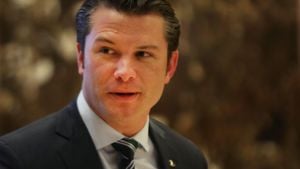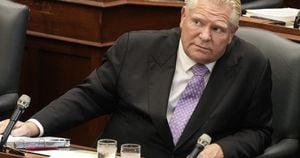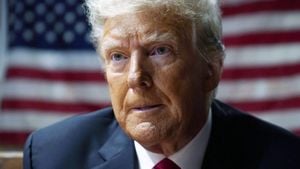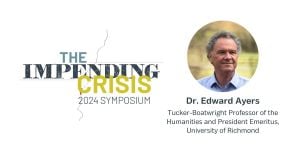As the CEO of JPMorgan Chase, Jamie Dimon stands at the helm of the nation’s largest and most prestigious bank, a position that links him closely to the currents of the American economy and global finance. Recently, as speculation looms over his potential retirement, Dimon has engaged in conversations around the state of the economy and the challenges ahead. He indicated that his exit from the position may come sooner than previously anticipated, noting, "It’s not five years anymore," during a recent investor day. This marked a shift from his historically vague retirement timeline, provoking market responses that reflect Dimon’s significant influence.
Financial markets reacted almost immediately to the hint at Dimon’s upcoming departure, with shares dropping by around four percent. This is not merely a reaction to the uncertainty surrounding his retirement; it reflects the confidence many investors place in Dimon’s leadership and strategic vision. Under his guidance, JPMorgan has navigated everything from regulatory scrutiny to financial crises, maintaining a solid trajectory with minimal scandal. Over the last five years alone, JPMorgan’s shares have surged up by almost 89%. This performance stands in stark contrast to some competitors, signaling confidence in Dimon’s longstanding ability to steer the bank through tumultuous waters.
Peering into what comes next, much speculation surrounds Dimon’s eventual successor. The potential candidates are not widely recognized figures outside the upper echelons of the bank, which has led to mixed feelings among investors. Some expect a three-way competition between leaders within JPMorgan, including Marianne Lake, now the consumer banking chief, Jennifer Piepszak, co-head of investment banking, and Troy Rohrbaugh. Lake's past experience as the firm’s CFO gives her an edge in managing risk effectively, a crucial factor as the bank prepares for a possible transition.
Dimon’s thoughts around succession have been influenced partly by observing leaders in other institutions, such as the recently retired CEO of Morgan Stanley, James Gorman. Gorman’s orderly transition gave rise to conversations among banking circles about the best methods for handling high-profile CEO changes. Dimon seems eager to emulate that process, desiring a stable entrustment of leadership whilst ensuring the bank's resilience in navigating upcoming economic challenges through a thoughtful selection of his eventual successor.
In his annual shareholder letter, Dimon elaborated on looming geopolitical concerns that might impact the U.S. economy. He expressed worries about the geopolitical climate fueled by the war in Ukraine and the Israel-Hamas conflict. These tensions, he noted, could provoke risks of unprecedented scale, suggesting that the U.S. might find itself facing challenges that are historically unusual. “America and the free Western world can no longer maintain a false sense of security based on the illusion that dictatorships won’t use their economic and military powers to advance their aims,” Dimon warned.
Addressing inflation and economic stability, Dimon shared a cautious outlook on the economy's "soft landing" potential, which many in the market hope for. He argued that existing economic pressures, including deficit spending and the need for infrastructure investment related to climate change, could keep inflation persistently elevated. This presents a nuanced reality wherein financial markets may not adjust as optimistically as forecasts suggest; he's skeptical about investor expectations of a smooth economic environment.
AI and the evolution of technology in banking were also focal points in Dimon's address. Recognizing the significant capabilities of artificial intelligence (AI), JPMorgan has already identified more than 400 use cases for this technology across fraud prevention, marketing, and risk management. Dimon heralded the potential of AI as transformational for the industry, likening its impact to historic technological advancements. "We are completely convinced the consequences will be extraordinary and possibly as transformational as some of the major technological inventions of the past several hundred years," he asserted.
This sentiment comes amidst a backdrop of significant change in the financial landscape. After all, 2023 was another strong year for JPMorgan, boasting record revenue across multiple business segments. The firm reported a revenue of $162.4 billion and net income of $49.6 billion, showcasing its ability to thrive actively while managing risks. Dimon’s focus extends far beyond profitability, emphasizing the essential role that corporate responsibility plays. He reiterated the bank's commitments to community development, diversity, and environmental sustainability, ensuring that economic growth pairs with long-term stewardship of the diverse stakeholders whom the bank serves.
While Dimon's impending retirement raises questions about his future endeavors, some speculate he might choose different paths. Whether teaching at a university level, entering into politics, or taking on a more ceremonial role within JPMorgan, his exact trajectory remains unclear. Some insiders believe he may stay connected with JPMorgan’s forward trajectory, providing strategic guidance while the new leadership takes on day-to-day operational responsibilities.
As the transition period approaches, many industry insiders and stakeholders are keenly observing Dimon’s moves. There’s a recognition that his shoes will not be easily filled, as his blend of leadership, insight, and market acumen has been instrumental in building JPMorgan's status as a leading financial institution on a global scale. Investors are left considering the firm's prospects against a backdrop of increasing global uncertainties and challenges that lie ahead, keenly aware that the next chapter may redefine both the bank and potentially, the landscape of American banking in the years to come.
There is a prevalent sense of respect and admiration in how Dimon has shaped JPMorgan Chase. His comments on firm leadership, particularly during such transformative times in geopolitics and financial management, reflect a broader perspective necessary for navigating today's complexities. With his legacy cemented in the annals of financial history, the incoming leadership team will undoubtedly have large expectations to meet, ensuring they preserve the principles that have brought the bank to its current prominence.



